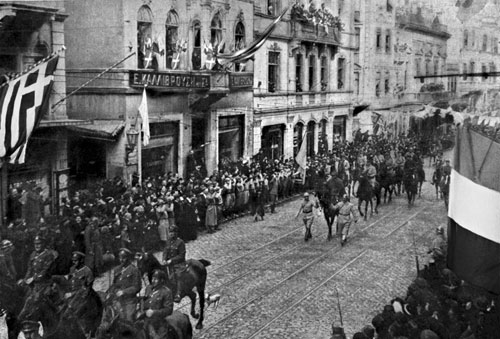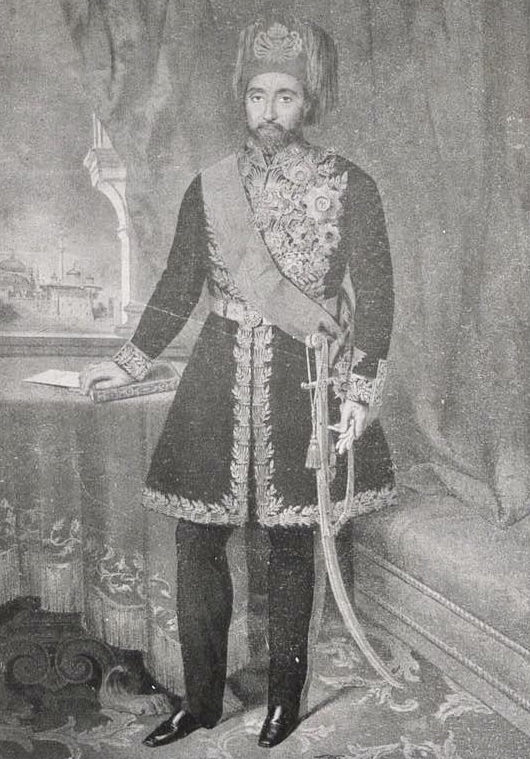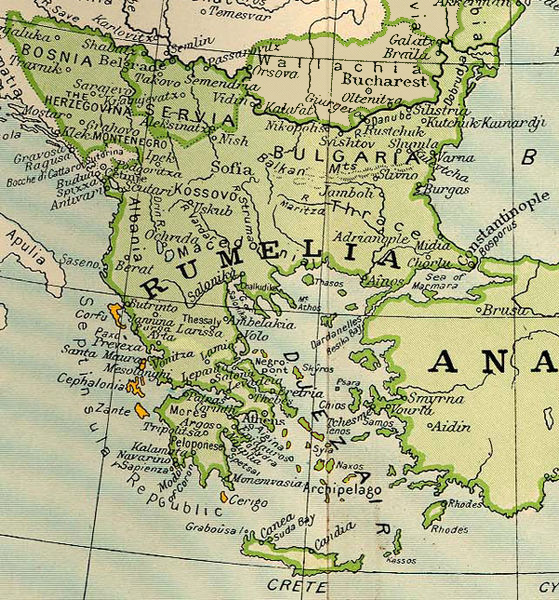|
Gendarmerie General Command
The Gendarmerie General Command () is the national gendarmerie force of the Republic of Turkey. It is a service branch of the Turkish Ministry of Interior responsible for the maintenance of the public order in areas that fall outside the jurisdiction of police forces (generally in rural areas), as well as assuring internal security along with carrying out other specific duties assigned to it by certain laws and regulations. In wartime, some of its elements can be subordinated to Turkish Land Forces by the President of Turkey. The Commander of the Gendarmerie reports to the Minister of the Interior. The Gendarmerie has its roots in the Ottoman Empire military law enforcement organization "Subaşı" (later known as the "Zaptiye"). A similar, earlier force called "Şurta" existed during the medieval Seljuq Empire. History Ottoman era After the abolition of the Janissary corps of the Ottoman Empire in 1826, military organizations called ''Asâkir-i Muntazâma-i Mansûre'', ''As ... [...More Info...] [...Related Items...] OR: [Wikipedia] [Google] [Baidu] |
Ottoman Gendarmerie
The Ottoman Gendarmerie (), also known as ''zaptı'' or ''subaşı'', was a security forces, security force and public order organization (a precursor to law enforcement) in the 19th-century Ottoman Empire. The first official gendarmerie organization was founded in 1869. History After the Auspicious Incident, abolition of the Janissary corps of the Ottoman Empire in 1826, military organizations called ''Asâkir-i Muntazâma-i Mansûre'', ''Asâkir-i Muntazâma-i Hâssa'', and, in 1834, ''Asâkir-i Redîfe'' were established to deliver security and public order services in Anatolia and in some provinces of Rumelia. Since the term Gendarmerie was noticed only in the Assignment Decrees published in the years following the Edict of Gülhane, declaration of Tanzimat in 1839, it is assumed that the Gendarmerie organization was founded after that year, but the exact date of foundation has not yet been determined. Therefore, taking the June 14 of "June 14, 1869", on which ''Asâkir-i Zap ... [...More Info...] [...Related Items...] OR: [Wikipedia] [Google] [Baidu] |
Topkapı Sarayında Nöbetçi Jandarma Eri
Topkapı ("cannonball gate"), sometimes spelled Topkapi outside of Turkey, is a Turkish word that may refer to: Places * Topkapı, Besni, a village in the district of Besni, Adıyaman Province, Turkey * Topkapı, Fatih, a neighbourhood of Istanbul near the Roman city walls * Topkapı, Kemaliye * Topkapı Palace, a museum in Istanbul, Turkey The Arts * Topkapi (album), ''Topkapi'' (album), a 1965 album by jazz organist Jimmy McGriff * Topkapi (film), ''Topkapi'' (film), a 1964 caper movie * ''Topkapi'' (previous title The Light of Day (Eric Ambler novel), ''The Light of Day'' (Eric Ambler novel)), a 1962 tragi-comic art heist spy novel Other * Topkapı Scroll, a Timurid dynasty pattern scroll at the Topkapı Palace museum's collection * Nesrin Topkapı (born 1951), Turkish belly dancer {{disambiguation ... [...More Info...] [...Related Items...] OR: [Wikipedia] [Google] [Baidu] |
Turkish War Of Independence
, strength1 = May 1919: 35,000November 1920: 86,000Turkish General Staff, ''Türk İstiklal Harbinde Batı Cephesi'', Edition II, Part 2, Ankara 1999, p. 225August 1922: 271,000Celâl Erikan, Rıdvan Akın: ''Kurtuluş Savaşı tarihi'', Türkiye İş̧ Bankası Kültür Yayınları, 2008, p. 339. , strength2 = 60,000 30,000 20,000 7,000 , casualties1 = 13,000 killedKate Fleet, Suraiya Faroqhi, Reşat Kasaba: The Cambridge History of Turkey Volume 4'', Cambridge University Press, 2008, , p. 159.22,690 died of diseaseSabahattin Selek: ''Millî Mücadele – Cilt I (engl.: National Struggle – Edition I)'', Burçak yayınevi, 1963, p. 109. 5,362 died of wounds or other non-combat causes35,000 wounded7,000 prisonersAhmet Özdemir''Savaş esirlerinin Milli mücadeledeki yeri'', Ankara University, Türk İnkılap Tarihi Enstitüsü Atatürk Yolu Dergisi, Edition 2, Number 6, 1990, pp. 328–332Total: 83,052 casualties , casualties2 = 24,240 kill ... [...More Info...] [...Related Items...] OR: [Wikipedia] [Google] [Baidu] |
World War I
World War I or the First World War (28 July 1914 – 11 November 1918), also known as the Great War, was a World war, global conflict between two coalitions: the Allies of World War I, Allies (or Entente) and the Central Powers. Fighting took place mainly in European theatre of World War I, Europe and the Middle Eastern theatre of World War I, Middle East, as well as in parts of African theatre of World War I, Africa and the Asian and Pacific theatre of World War I, Asia-Pacific, and in Europe was characterised by trench warfare; the widespread use of Artillery of World War I, artillery, machine guns, and Chemical weapons in World War I, chemical weapons (gas); and the introductions of Tanks in World War I, tanks and Aviation in World War I, aircraft. World War I was one of the List of wars by death toll, deadliest conflicts in history, resulting in an estimated World War I casualties, 10 million military dead and more than 20 million wounded, plus some 10 million civilian de ... [...More Info...] [...Related Items...] OR: [Wikipedia] [Google] [Baidu] |
Young Turk Revolution
The Young Turk Revolution (July 1908; ) was a constitutionalist revolution in the Ottoman Empire. Revolutionaries belonging to the Internal Committee of Union and Progress, an organization of the Young Turks movement, forced Sultan Abdul Hamid II to restore the Constitution of the Ottoman Empire, Constitution, recall the General Assembly of the Ottoman Empire, parliament, and schedule an 1908 Ottoman general election, election. Thus began the Second Constitutional Era which lasted from 1908–1912 and also the Turkish Revolution, an era of political instability and social change which lasted for more than four decades. The revolution took place in Rumelia, Ottoman Rumeli in the context of the Macedonian Struggle and the increasing instability of the Hamidian regime. It began with CUP member Ahmed Niyazi Bey, Ahmed Niyazi's flight into the Albanian highlands. He was soon joined by Enver Pasha, İsmail Enver, Eyüp Sabri Akgöl, Eyub Sabri, and other Unionist officers. They networke ... [...More Info...] [...Related Items...] OR: [Wikipedia] [Google] [Baidu] |
Mehmed Said Pasha
Mehmed Said Pasha (; 1838–1914), also known as Küçük Said Pasha (; "Said Pasha the Younger") or Şapur Çelebi or in his youth as Mabeyn Başkâtibi Said Bey, was an Ottoman Turkish monarchist, senator, statesman and editor of the Turkish newspaper '' Cerîde-i Havâdis''. He served as grand vizier for nine years in total, seven times during the reign of Abdul Hamid II and twice during the Second Constitutional Monarchy. He was known for his opposition to the extension of foreign influence in the Ottoman Empire.A.g.e. II.995-999. He was among the statesmen who were disliked by the Committee of Union and Progress (CUP). However, in his last two grand vizierships, Said Pasha was supported by the CUP in the Chamber of Deputies, and his last grand vizierate ended in 1912 with a military memorandum against the Unionists. Early life Mehmed Said was born in Erzurum. His father was Ali Namık Efendi, a foreign minister. According to his contemporary Petre Kharischirash ... [...More Info...] [...Related Items...] OR: [Wikipedia] [Google] [Baidu] |
Russo-Turkish War (1877–1878)
The Russo-Turkish War (1877–1878) was a conflict between the Ottoman Empire and a coalition led by the Russian Empire which included United Principalities of Moldavia and Wallachia, Romania, Principality of Serbia, Serbia, and Principality of Montenegro, Montenegro. Precipitating factors included the Russian goals of recovering territorial losses endured during the Crimean War of 1853–1856, re-establishing itself in the Black Sea and supporting the political movement attempting to free Balkan nations from the Ottoman Empire. The Romanian army had around 114,000 soldiers in the war. In Romania the war is called the Russo-Romanian-Turkish War (1877–1878) or the Romanian War of Independence, Romanian War of Independence (1877–1878). The Russian-led coalition won the war, pushing the Ottomans back all the way to the gates of Constantinople, leading to the intervention of the Western European great powers. As a result, Russia succeeded in claiming provinces in the Caucasus, n ... [...More Info...] [...Related Items...] OR: [Wikipedia] [Google] [Baidu] |
Edict Of Gülhane
The Gülhane Hatt-ı Şerifi ("Supreme Edict of the Rosehouse") or Tanzimât Fermânı ("Imperial Edict of Reorganization") was a proclamation by Ottoman Sultan Abdülmecid I in 1839 that launched the Tanzimât period of reforms and reorganization in the Ottoman Empire. The 125th anniversary of the edict was depicted on a former Turkish postcard stamp. The proclamation was issued at the behest of reformist Grand Vizier Mustafa Reşid Pasha. It promised reforms such as the abolition of tax farming, reform of conscription, and guarantee of rights to all Ottoman citizens regardless of religion or ethnic group. The goal of the decree was to help modernize the empire militarily and socially so that it could compete with the Great Powers of Europe. It also was hoped the reforms would win over the disaffected parts of the empire, especially in the Ottoman controlled parts of Europe, which were largely Christian. At the time of the edict, millets (independent communal law-c ... [...More Info...] [...Related Items...] OR: [Wikipedia] [Google] [Baidu] |
British Officers In The Ottoman Gendarmerie Graphic June 25 1904
British may refer to: Peoples, culture, and language * British people, nationals or natives of the United Kingdom, British Overseas Territories and Crown Dependencies. * British national identity, the characteristics of British people and culture * British English, the English language as spoken and written in United Kingdom of Great Britain and Northern Ireland and, more broadly, throughout the British Isles * Celtic Britons, an ancient ethno-linguistic group * Brittonic languages, a branch of the Insular Celtic language family (formerly called British) ** Common Brittonic, an ancient language Other uses *People or things associated with: ** Great Britain, an island ** British Isles, an island group ** United Kingdom, a sovereign state ** British Empire, a historical global colonial empire ** Kingdom of Great Britain (1707–1800) ** United Kingdom of Great Britain and Ireland (1801–1922) * British Raj, colonial India under the British Empire * British Hong Kong, colonial Ho ... [...More Info...] [...Related Items...] OR: [Wikipedia] [Google] [Baidu] |
Rumelia
Rumelia (; ; ) was a historical region in Southeastern Europe that was administered by the Ottoman Empire, roughly corresponding to the Balkans. In its wider sense, it was used to refer to all Ottoman possessions and Vassal state, vassals in Europe. These would later be geopolitically classified as "the Balkans", although Hungary and Moldova are sometimes excluded. In contemporary English sources, Rumelia was known as Turkey in Europe. Etymology ''Rûm'' in this context means 'Roman' and ''ėli'' means 'land', and thus ''Rumelia'' (, ''Rūm-ėli''; Turkish language, Turkish: ''Rumeli'') means 'Land of the Romans' in Ottoman Turkish language, Ottoman Turkish. It refers to the lands conquered by the Ottoman Empire in the Balkans, most of which formerly belonged to the Byzantine Empire, known by its contemporaries as the Eastern Roman Empire, Roman Empire. Although the term ''Byzantine Empire'' is used by modern historians, the empire's citizens and emperors called themselves Ro ... [...More Info...] [...Related Items...] OR: [Wikipedia] [Google] [Baidu] |




